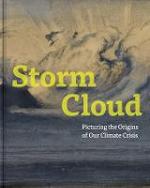A revealing exploration of how prescient nineteenth-century artists, writers, and scientists began to sound the alarm on climate crisis Against a backdrop of industrialization and scientific development that reshaped humanity’s relationship to the planet, nineteenth-century artists and writers began to express a novel perception of humanity’s place in, and impact on, the natural world. This essential volume traces, in art and literature, the growing understanding of the industrial world’s effect on the environment. It features works from both sides of the Atlantic, including paintings, photographs, scientific illustrations, and books by Mary Hunter Austin, Frederic Edwin Church, Thomas Cole, John Constable, Henry David Thoreau, and Carleton Watkins. These are discussed by experts, including artists, art and literary historians, scientists, environmental activists, and representatives of Indigenous knowledge. Examining a nascent environmental awareness through the intersection of art and science, contributors highlight this intertwined historical dialogue and what it can tell us about today’s climate crisis. The title references lectures by the Victorian writer John Ruskin, in which he described how decades of observing the English skies led him to conclude that his own age had created a disturbing “storm-cloud”-smog caused by burning coal. Though he wouldn’t have understood it in this way, his lectures became one of the earliest published considerations of human-caused climate change.

Storm cloud : picturing the origins of our climate crisis
ISBN: 9780300276145
Format: Hardback
Publisher: Yale University Press
Origin: US
Release Date: January, 2025


